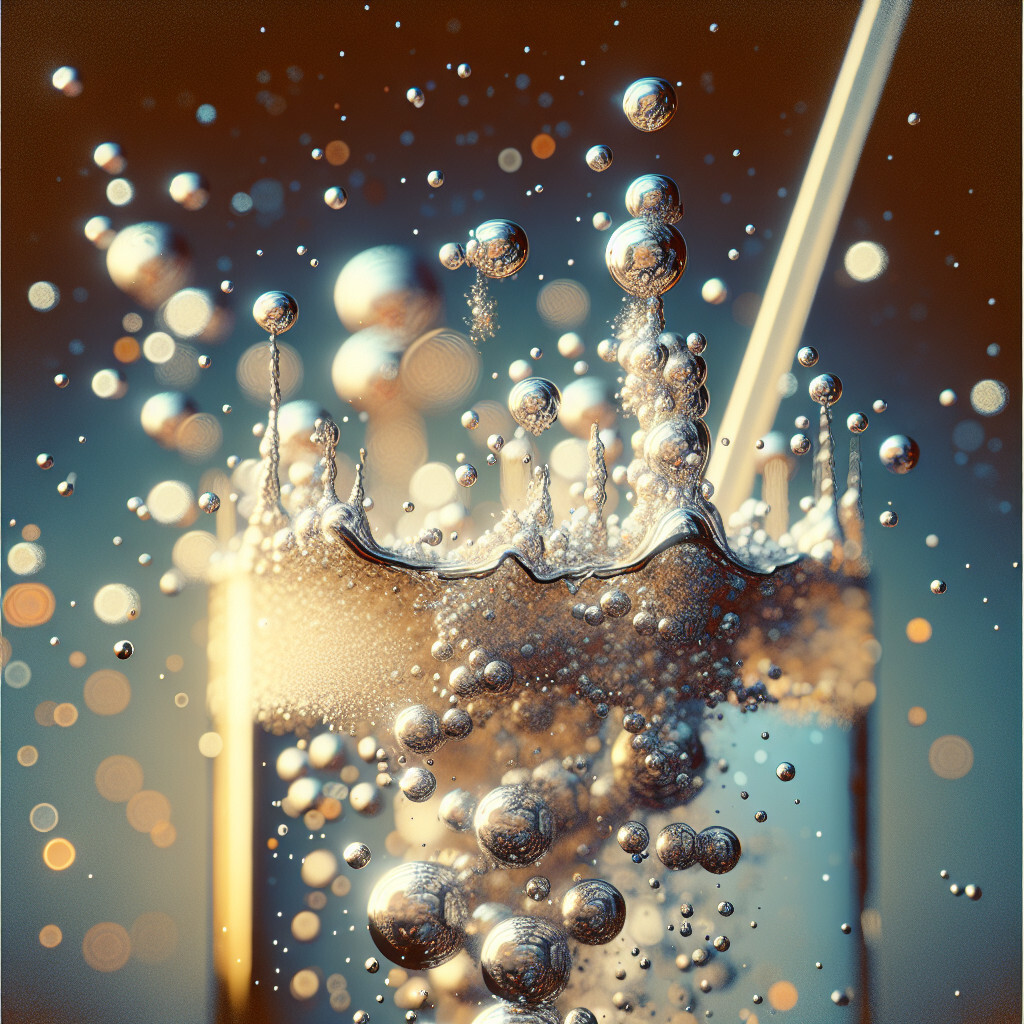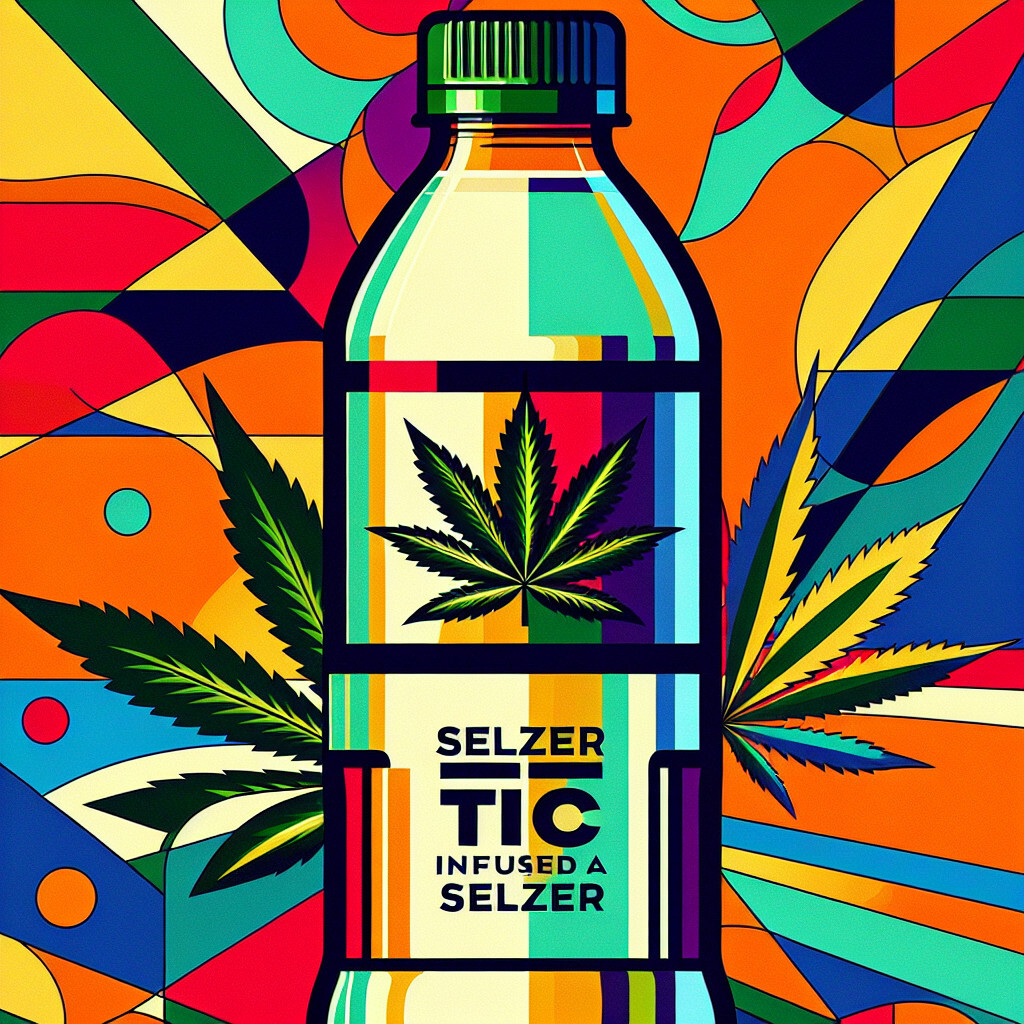-
Table of Contents
“Sparkle Your Sip: Pure, Crisp, Refreshing Seltzer Water”
Introduction

A seltzer water label provides essential information about the seltzer water contained within the packaging. It includes details such as the brand name, nutritional facts, ingredients, and any additional features like being sugar-free or flavored. The label may also contain information about the source of the water, carbonation process, and any certifications the product holds. It serves as a guide for consumers to understand what they are consuming and make informed choices.
Understanding the Nutritional Information on Seltzer Water Labels
Seltzer water, also known as sparkling water, has gained significant popularity in recent years as a refreshing, calorie-free alternative to sugary sodas. However, as with any food or beverage product, it’s essential to understand the nutritional information provided on the seltzer water label. This knowledge can help consumers make informed decisions about their dietary intake and overall health.
The first thing to note when examining a seltzer water label is the ingredient list. Pure seltzer water should contain only two ingredients: water and carbon dioxide, which gives the beverage its characteristic fizz. Some brands, however, may add minerals for taste or include natural flavors to create a variety of options. It’s crucial to read the ingredient list carefully, especially if you have dietary restrictions or allergies.
Next, take a look at the nutritional facts panel. This section provides information about the serving size, calories, and nutrient content. Since seltzer water is typically calorie-free, the calorie count should be zero. If you notice any calories listed, it’s likely due to added sugars or flavors.
The nutrient content section of the label will usually show zeros across the board for seltzer water. This is because pure seltzer water does not contain any significant amounts of vitamins, minerals, or other nutrients. However, some flavored or enhanced versions may contain small amounts of nutrients, so it’s always a good idea to check this section.
One of the most critical parts of the seltzer water label to pay attention to is the sodium content. While pure seltzer water should not contain any sodium, some brands may add it for taste. Consuming too much sodium can lead to high blood pressure and other health problems, so it’s essential to monitor your intake.
Another important aspect to consider is the presence of any artificial sweeteners. While these can make the seltzer water taste sweet without adding calories, some people may want to avoid them due to health concerns or dietary preferences. If a seltzer water product is labeled as “diet” or “zero-calorie,” it may contain artificial sweeteners, which should be listed in the ingredients.
Lastly, some seltzer water labels may include claims such as “natural,” “organic,” or “healthy.” It’s important to understand that these terms are not strictly regulated and may not mean what you think they do. For example, a “natural” flavor could still come from a lab, and “organic” only means that the ingredients were grown without certain pesticides and fertilizers. As for “healthy,” this term is subjective and depends on many factors, including the rest of your diet and lifestyle.
In conclusion, understanding the nutritional information on seltzer water labels can help you make healthier choices. By paying attention to the ingredient list, nutritional facts panel, sodium content, presence of artificial sweeteners, and any health claims, you can ensure that your seltzer water fits into your dietary needs and preferences. Remember, the best choice is always the one that aligns with your personal health goals and tastes.
Decoding the Ingredients: A Closer Look at Seltzer Water Labels
Seltzer water, also known as sparkling water, has gained significant popularity in recent years as a refreshing, calorie-free alternative to sugary sodas. However, as consumers become more health-conscious, many are scrutinizing the labels of their favorite seltzer water brands to understand what they are truly consuming. This article aims to decode the ingredients typically found on seltzer water labels, providing a closer look at what goes into these fizzy beverages.
The primary ingredient in seltzer water is, of course, water. This is typically carbonated water, which simply means that carbon dioxide gas has been dissolved into it under pressure. The process of carbonation is what gives seltzer water its characteristic fizz and tangy taste. It’s important to note that carbonation itself does not add any calories or sugar to the water, making it a healthy choice for those looking to stay hydrated without consuming extra calories.
However, the story doesn’t end with carbonated water. Many seltzer water brands also include other ingredients to enhance the flavor of their products. One common addition is natural flavors. This term can be somewhat misleading, as it doesn’t necessarily mean the flavors are derived directly from the fruit or plant named on the label. Instead, natural flavors refer to any flavoring compound obtained from plant or animal sources, which may be used in its original form or processed in some way before it is added to the seltzer water.
While natural flavors are generally considered safe, some consumers may prefer to avoid them due to potential allergenic properties or personal dietary preferences. For those individuals, it’s worth seeking out seltzer water brands that use real fruit juice for flavoring instead. These products will typically list the specific type of fruit juice used on the label, such as lemon juice or lime juice.
Another ingredient to watch out for on seltzer water labels is sodium. Some brands add sodium to their products to enhance the taste. While a small amount of sodium is necessary for bodily functions, too much can lead to high blood pressure and other health problems. Therefore, those on a low-sodium diet or with certain health conditions should be mindful of the sodium content in their seltzer water.
Lastly, some seltzer waters may contain added sugars or artificial sweeteners to make them taste more like traditional sodas. These ingredients can add unnecessary calories to the beverage and may have other health implications. Therefore, it’s crucial to read the label carefully and choose seltzer waters that do not contain added sugars or artificial sweeteners if you’re looking for a truly healthy alternative to soda.
In conclusion, while seltzer water is generally a healthy beverage choice, not all brands are created equal. By taking the time to understand the ingredients listed on the label, consumers can make informed decisions about which seltzer water brands align best with their dietary needs and health goals. Whether you prefer your seltzer water plain or flavored, with or without sodium, understanding what goes into your beverage is the first step towards making healthier choices.
The Importance of Reading Seltzer Water Labels: What You Need to Know
Seltzer water, also known as sparkling water, has become a popular choice for many health-conscious individuals. Its refreshing taste and effervescence make it an appealing alternative to sugary sodas and flat water. However, not all seltzer waters are created equal. It is crucial to understand the importance of reading seltzer water labels to ensure that you are making the healthiest choice for your body.
Firstly, it is essential to understand what seltzer water is. It is simply water that has been carbonated, meaning it has been infused with carbon dioxide under pressure. This process gives the water its characteristic bubbles and fizz. Pure seltzer water should not contain any added sugars, salts, or artificial flavors. However, many brands add these ingredients to enhance the taste, which can lead to health issues if consumed in large quantities.
Reading the label on your seltzer water can provide valuable information about its contents. The ingredient list is a good place to start. Ideally, the only ingredient should be carbonated water. However, if there are additional ingredients, they should be natural flavors derived from fruits or herbs, not artificial ones. Artificial flavors can contain chemicals that may have adverse health effects.
Another critical aspect to look for on the label is the sodium content. Some brands of seltzer water add sodium to enhance the taste. While a small amount of sodium is not harmful, consuming too much can lead to high blood pressure and other health problems. Therefore, it is advisable to choose a brand with low or no sodium.
The sugar content is another crucial factor to consider. Some seltzer waters are sweetened with sugar or artificial sweeteners to make them more palatable. However, consuming too much sugar can lead to weight gain, diabetes, and other health issues. Artificial sweeteners, on the other hand, can cause digestive problems and may even increase your craving for sweet foods. Therefore, it is best to choose a seltzer water that is unsweetened or sweetened with natural sweeteners like stevia.
Lastly, it is worth noting that some seltzer waters contain added vitamins and minerals. While this may seem like a bonus, it is important to remember that the best way to get your vitamins and minerals is through a balanced diet. Consuming too much of certain vitamins and minerals can be harmful, so it is best to consult with a healthcare professional before choosing a fortified seltzer water.
In conclusion, while seltzer water can be a healthy alternative to sugary drinks, it is important to read the label carefully to ensure you are making the best choice for your health. Look for seltzer water with no added sugars, low or no sodium, and no artificial flavors. Remember, the simplest option is often the healthiest. By taking the time to read and understand the labels on seltzer water, you can enjoy the refreshing taste and effervescence without compromising your health.
Seltzer Water Labels: A Comprehensive Guide to Making Healthier Choices
Seltzer water, also known as sparkling water, has gained significant popularity in recent years as a healthier alternative to sugary sodas and artificially flavored beverages. However, not all seltzer waters are created equal, and the key to making healthier choices lies in understanding the information presented on the seltzer water label.
The first thing to note when examining a seltzer water label is the list of ingredients. Pure seltzer water should ideally contain only two ingredients: water and carbon dioxide. The latter is what gives the beverage its characteristic fizz. However, many brands add other ingredients such as natural flavors, minerals, or sweeteners to enhance the taste. While these additions may not necessarily be harmful, they can sometimes turn a seemingly healthy beverage into a less desirable choice. For instance, some seltzer waters contain added sugars or artificial sweeteners, which can contribute to weight gain and other health problems if consumed in excess. Therefore, it’s crucial to read the ingredient list carefully and opt for brands that keep their ingredient list short and simple.
Next, pay attention to the nutritional facts panel. This section provides information about the calorie content, amount of sugars, and other nutritional aspects of the beverage. A healthy seltzer water should ideally have zero calories and zero sugars. If the label indicates otherwise, it’s a sign that the product contains added sugars or other calorie-contributing ingredients.
Another important aspect to consider is the sodium content. While sodium is a necessary nutrient for the body, excessive intake can lead to high blood pressure and other health issues. Some brands of seltzer water contain added sodium to enhance the taste, so it’s important to check the sodium content on the label. The American Heart Association recommends limiting sodium intake to 1,500 mg per day, so choose a brand that fits within this guideline.
In addition to the above, some seltzer water labels may also include claims such as “natural,” “organic,” or “non-GMO.” While these terms may sound appealing, they can sometimes be misleading. For instance, the term “natural” is not strictly regulated by the Food and Drug Administration (FDA), so it doesn’t necessarily guarantee that the product is healthier. Similarly, while “organic” and “non-GMO” indicate that the ingredients were grown without synthetic pesticides or genetically modified organisms, they don’t provide information about the nutritional quality of the product. Therefore, it’s important to not rely solely on these claims when making your choice.
Lastly, consider the environmental impact of your choice. Many seltzer waters come in single-use plastic bottles, which contribute to plastic pollution. Opt for brands that use recyclable packaging or, better yet, consider investing in a home carbonation system to make your own seltzer water.
In conclusion, making healthier choices when it comes to seltzer water involves more than just choosing the brand with the most appealing packaging or the most enticing flavor. By understanding how to read and interpret seltzer water labels, you can make informed decisions that align with your health goals and values.
Q&A
1. Question: What information is typically found on a seltzer water label?
Answer: A seltzer water label typically includes the brand name, type of flavoring if any, nutritional information such as calories, sodium, and other minerals, ingredients list, and manufacturer’s details.
2. Question: Does a seltzer water label indicate if the product is sugar-free?
Answer: Yes, a seltzer water label will indicate if the product is sugar-free. This information can be found in the nutritional information section.
3. Question: What does it mean if a seltzer water label says “naturally flavored”?
Answer: If a seltzer water label says “naturally flavored”, it means that the flavoring comes from a natural source such as fruit extracts or essences, rather than artificial flavorings.
4. Question: Can I find out the source of carbonation from a seltzer water label?
Answer: Yes, the source of carbonation should be listed in the ingredients on the seltzer water label. It is usually carbon dioxide that has been added to the water.
Conclusion
The conclusion about a seltzer water label is that it provides crucial information about the product such as its ingredients, nutritional facts, manufacturer details, and any additional features like being sugar-free or flavored. It helps consumers make informed decisions about their beverage choices.






